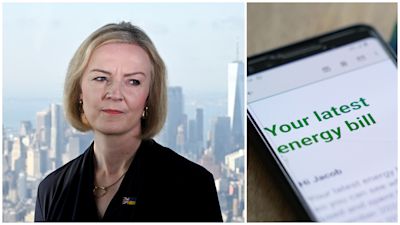Exclusive
Government to pay for a third of all UK power costs

The government will announce tomorrow that it will cover the costs of more than £1 in every £3 of gas consumed by businesses and households over the next six months.
There has been no subsidy of a market price on this scale in British history.
Estimates of the final bill for taxpayers range from £100 billion to £200 billion, or more than the annual cost of running the NHS - if the scheme for households lasts for two years, as promised, and the separate one for all businesses runs for six months, to be followed by a less ambitious business scheme for another 18 months.
Early tomorrow the business secretary Jacob Rees-Mogg will announce the mechanism for subsidising energy costs for businesses from 1 October, and he will announce more details for the energy price guarantee for households.
All we know so far is that the unit prices of gas and electricity for households will be set at levels that would mean the average bill would be around £2,500 a year.
However, I've done some digging and this is what I've uncovered.
According to industry sources, an average £2,500 bill implies a gas price of roughly 10p per kWh and an electricity price of 34p per kWh.
For gas, this is equivalent to a price per therm of £2.93, which - according to data supplied by the consultancy Cornwall Insight - compares with a price in the wholesale market for six months of gas for delivery from 1 October of £4.67.
The market price would be £4.32 per therm for a year's worth of gas from 1 October.
We know that households and businesses will be charged more or less the same for each unit of energy they use.
So in order for businesses to be charged this government guaranteed price of £2.93 for the next six months, or the price implicitly promised by the prime minister Liz Truss, taxpayers will have to make up the difference between that £2.93 and the market price of £4.67.
And for households to be charged the guaranteed price of £2.93 for a year, taxpayers will have to make up the difference between £2.93 and £4.32.
This is a subsidy of more than a third of the price for business, and a fraction under a third for households.
At the level of the entire economy, it will be a huge, eye-watering subsidy.
It is a scale of intervention that would give pause for thought even to socialist governments.
It is being implemented by a prime minister and government that have set themselves the task of rolling back state interventions and liberating the private sector.
You can decide whether this is a paradox or just a contradiction.